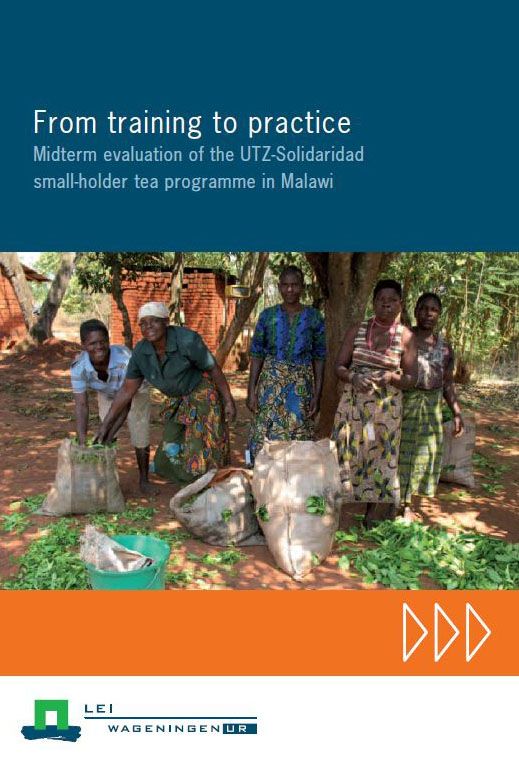From Training to Practice: Mid-term Evaluation of the UTZ-Solidaridad Smallholder Tea Programme in Malawi
This evaluation provides evidence on the effectiveness, appropriateness and relevance of the tea certification program in Malawi.
The effectiveness of the program was assessed based on the following evaluation questions:
- To what extent have the activities led to the planned outputs?
- To what extent have the objectives (outcome level) of the program been realised as a result of the output?
- To what extent are the different target groups reached?
- What are the main factors influencing the results of the actors?
One-third of the overall immediate outcome indicators have changed significantly in a positive way between 2010 and 2012. Farmers who received trainings make better informed decisions on farm management, adopted more sustainable practices, enjoy healthier and safer working and living conditions, improved use of personal protective equipment, and reduced the use of pesticides. The relationship between farmers and tea factory managers also improved.
An unexpected finding is that the knowledge level on sustainable farming practices decreased compared to the baseline. The evaluators found no good explanations for this finding, which seems to challenge the causal sequence in the theory of change that improved knowledge is a prerequisite for improved practices. Despite a decrease in knowledge, the overall implementation of sustainable practices improved over time.
